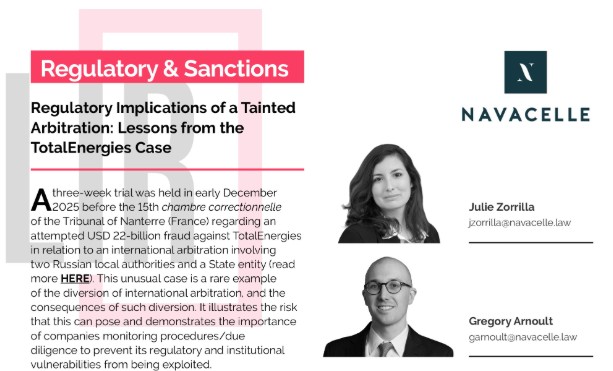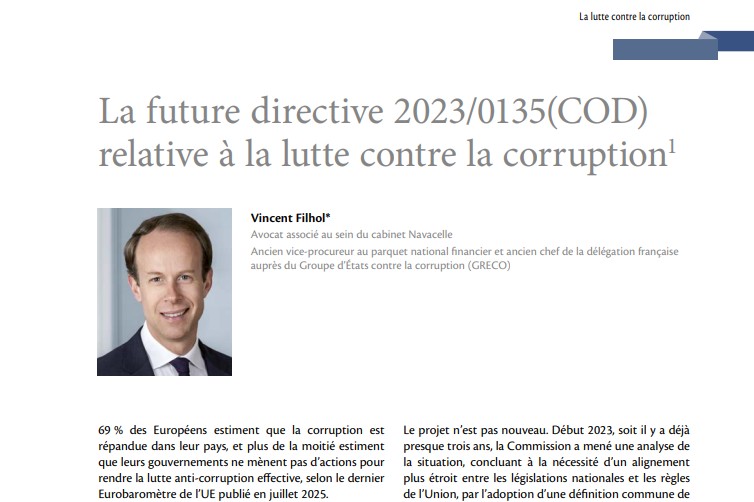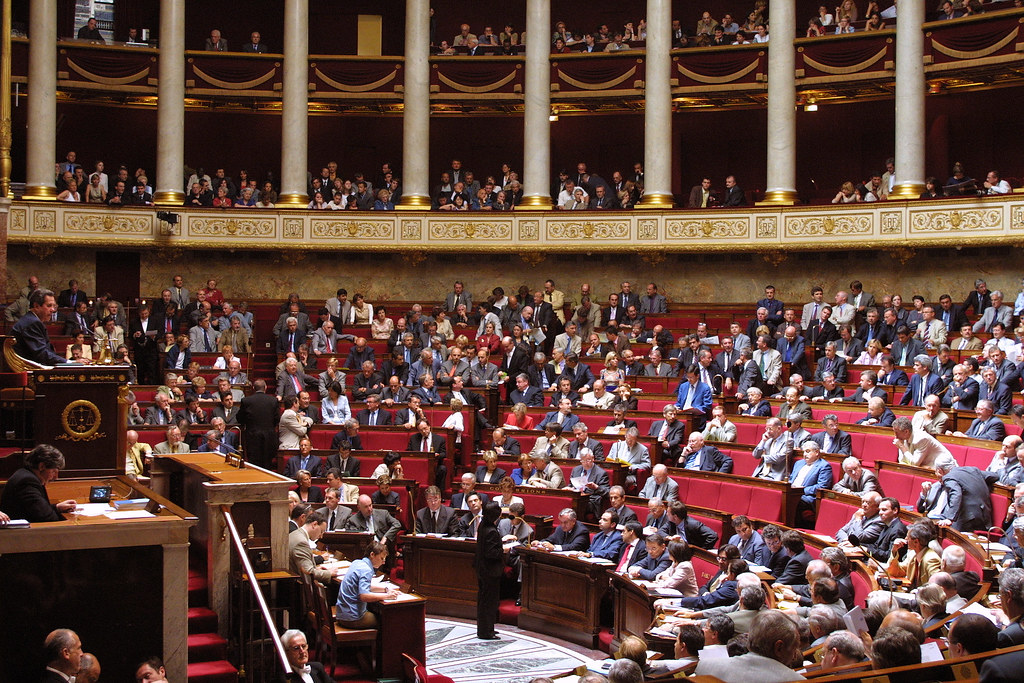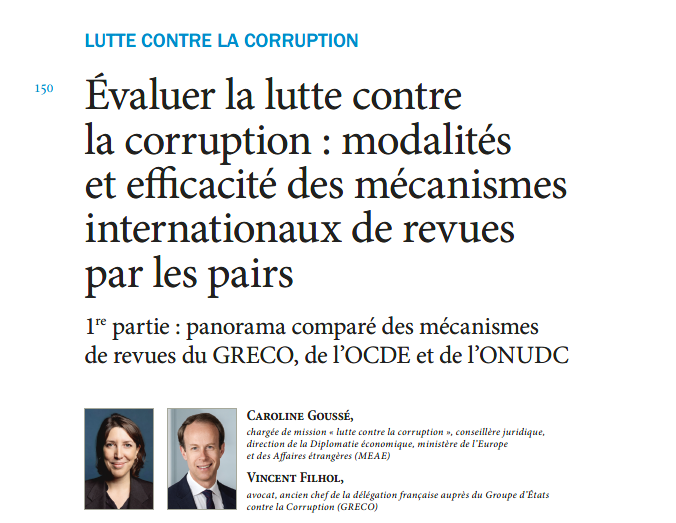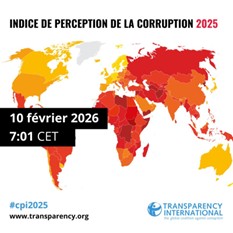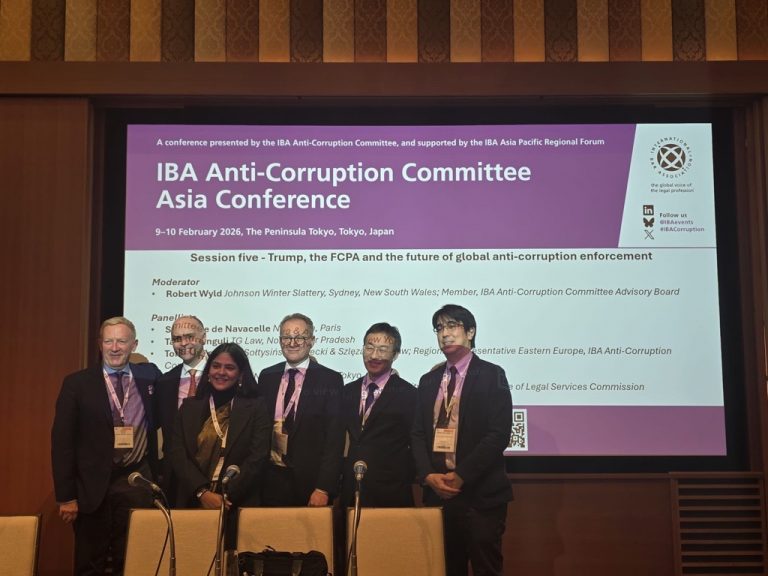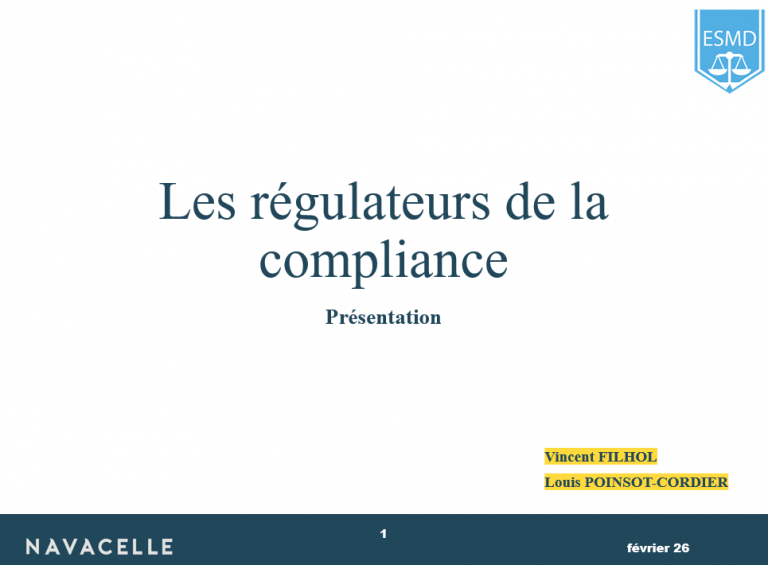The Group of States against Corruption (“GRECO”) was set up in 1999 by the Council of Europe to review and improve Members’ capacity to fight corruption. Anti-corruption policies are evaluated through the lens of the Council of Europe anti-corruption standards and the Group provides recommendations on potential legislative, institutional, and practical reforms.
France has recently taken a stronger stance on the fight against corruption. Whilst the adoption of the Sapin II anticorruption law in 2016 brought forth more stringent obligations on corporations [1] , the GRECO evaluation report published on January 9, 2020 focuses specifically on corruption amongst persons with top executive functions (“PTEFs”) and members of law enforcement agencies. It provided a fair assessment of recent progress that has been made in that regard but also identified vulnerable areas.
I. Preventing corruption amongst persons with top executive functions
Positive legislative developments were welcomed by the GRECO evaluation team (“GET”) but the report pointed out that there was still room for improvement in terms of transparency in public life.
It specifically underlined the lack of codes of conduct addressing integrity issues (conflicts of interest, obligations in terms of declarations, incompatibilities, gifts, post-employment obligations, contacts with lobbyists etc.) for PTEFs working in government.
While the Ethics Charter of the Presidency is seen as a step in the right direction, the adoption of codes of conduct was recommended along with the introduction of effective monitoring mechanisms and proportionate disciplinary sanctions in case of violation. The GET underlined that at present, the Ministry for Europe and Foreign Affairs was the only ministry that adopted a comprehensive code of conduct and argued that this practice could be extended to all ministries and PTEFs [2].
Closer cooperation between the High Authority on Transparency of Public Life (“HATVP”) and the French Anti-Corruption Agency (“AFA”) was suggested in order to better assess and prevent the risks affecting PTEFs. The GET indeed noted that both these institutions already assist and advise ministries in drawing up risk assessments concerning PTEFs. Therefore, grouping this information together would likely result in a more accurate analysis [3]. It has to be noted however that just few days before the GRECO’s report was released, a new cooperation agreement was signed on November 26, 2019 between the HATVP and the AFA, aiming at strengthening the prevention and detection of collusion in public institutions [4].
Transparency in exchanges between PTEFs and lobbyists was also identified as an area that can be improved. The Sapin II law introduced a digital register of lobbyists to inform the public on relations between lobbyists and the authorities [5]. However, only lobbyists who have initiated the contacts with PTEFs are required to register. This means that lobbyists who are contacted directly by the Government to engage on a specific topic are not required to register under the current system. An extension of that requirement to all lobbyists who have been in contact with PTEFs is seen as be desirable.
With regard to the criminal liability of PTEFs, the GET concluded that the establishment of the National Financial Prosecution Office (“PNF”) could facilitate the handling of corruption cases. It noted however that members of the governments are tried by the Court of Justice of the Republic (“CJR”) for acts performed in the course of their duties. The GET found that situation unsatisfactory as half of the members of the CJR are members of the Parliament, which may create suspicion on the independence and impartiality of the Court. Therefore, it was recommended that government members who are prosecuted for acts of corruption relating to the performance of their duties be brought before a court that ensures total independence and impartiality [6].
II. Preventing corruption in law enforcement agencies
The GET examined measures aimed at preventing corruption in the main components of French law enforcement agencies: the Police Nationale and the Gendarmerie Nationale.
It recommended the adoption of a global strategy focusing on the prevention of corruption within law enforcement agencies on the basis of risk assessments.
Whilst it acknowledged the existence of a code of conduct incorporated into the Internal Security Code that applies to both institutions and which bears regulatory power, the GET took the view that concrete examples and situations should be included to illustrate situations that may present a risk with respect to integrity. A code with a commentary for the 32 articles has been prepared and the GET recommended that the commentary be revised to expand on integrity issues (conflicts of interests, gifts, handling of confidential information, contacts with third parties etc.) and provide concrete examples [7].
Finally, the GET stated that the current reporting mechanisms set up for whistleblowers and the multi-layered procedure should be reviewed periodically and simplified. The entry into force of the European Directive on the protection of whistleblowers [8], which deals with the simplification of the reporting channels [9], should encourage France to improve its legislation on this point. In addition, it concluded that the training of law enforcement personnel should be strengthened to reflect those changes and provide for a more effective protection of whistleblowers [10].
The report concludes on a series of recommendations and invites France to submit a report on the measures taken to implement those recommendations before June 30, 2021.
